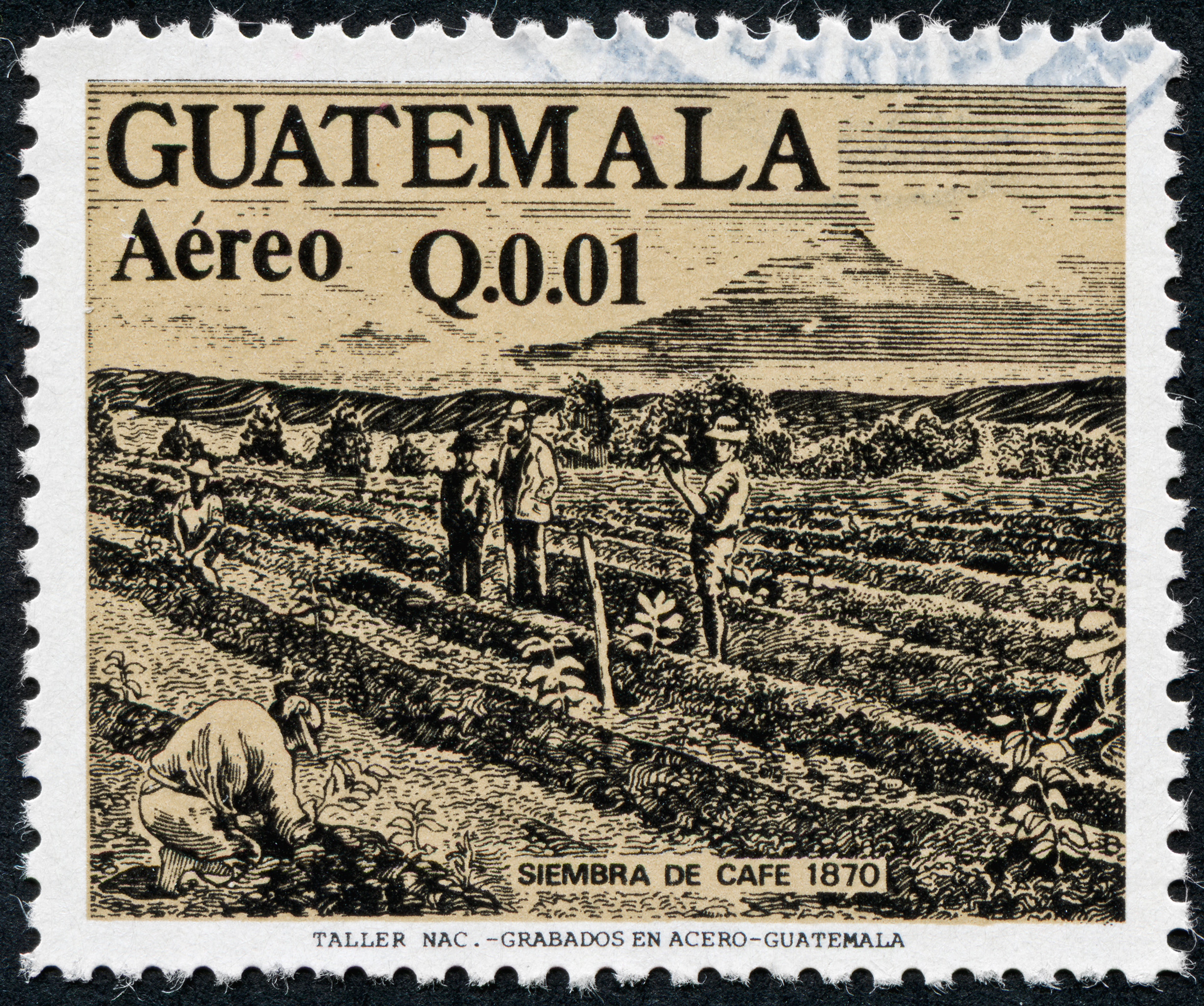 Coffee has been one of Guatemala’s most important exports since the mid-nineteenth century. This stamp is part of a series issued in the 1980s commemorating ‘more than 100 years of fruitful labour’ in the coffee industry.
Coffee has been one of Guatemala’s most important exports since the mid-nineteenth century. This stamp is part of a series issued in the 1980s commemorating ‘more than 100 years of fruitful labour’ in the coffee industry.
Anacafé, Guatemala’s national coffee organisation, represents all of the country’s coffee producers. The Congress of Guatemala passed a decree in 1969, known as the Coffee Law, which established Anacafé’s role in determining coffee policy. This law and subsequent amendments give Anacafé responsibility for advising the government and establishing policy on matters related to coffee, including the support of producers and the promotion of exports. Major governmental policy on coffee is decided by the Coffee Policy Council (Consejo de Política Cafetera), which includes representatives from Anacafé and the Central Bank as well as government ministers.
Anacafé is responsible for granting all export permits for coffee, which allows it to control grading and origin information and verify that all producers are complying with its standards. The organisation is financed by a 1% tax on all coffee exports, which is Guatemala’s only export tax (WTO 2017). Some of this money is set aside to support municipal authorities, while the rest funds Anacafé’s activities.
To be certified for export, coffees are graded by exporters, and samples are sent to Anacafé for verification. Unlike in some producing countries which specify a minimum export grade, Guatemalan coffee of all quality levels can be exported (LMC International 2000). Not all of its high-quality coffee is exported, however; more than 10% of the coffee produced in Guatemala in 2020 was sold on the local market. The average coffee consumption in Guatemala is around 1.6 kg (3.5 lb) per person per year; this is the second-highest rate of consumption in Central America after Costa Rica (USDA 2017).
The International Coffee Agreement
The International Coffee Agreement between producing and consuming countries, established in 1962, aims to stabilise coffee prices by controlling the coffee supply.